How to Land Your First Remote Front-end Developer Job

I have a friend. His name's Alex. He's been working in a dead-end job for years. He'd spend 2 hours commuting to and from work every day. He was tired of it. By the time got home, he had barely any time to play with his kids or spend time with his wife.
Every year, his family and mine would go on a vacation together. One night we were making a barbecue, drinking beer, and talking about life. Alex knew I'm a software developer. A little hesitant, he asked me: "Do you think I could become a software developer and work from home?"
He'd been thinking about it for a while. He's my friend, so I was honest with him. I told him it wouldn't be easy. But I also told him it was possible.
After the vacation, Alex started learning how to code. He'd spend 1-2 hours each day learning HTML, CSS, and JavaScript. He was determined.
I watched him grow from a complete beginner to a junior front-end developer.
9 months later, Alex landed his first remote front-end developer job.
This article is inspired by Alex’s journey. I hope it helps you find the remote job you’ve been dreaming of too.
Remote Job Is Not Just a Dream
I have been in the tech industry for nearly two decades, and I knew that landing a remote job as a junior front-end developer could be challenging. But I also knew that with the right strategy and mindset, it was possible.
Thousands before you have done it. You can do it too.
Out of the two decades I’ve spent in tech, I’ve worked remotely for almost 10 years. I’ve seen the industry evolve and the demand for remote work grow.
It's About The Work You Put In
There are a lot of stories out there about people who have landed their first junior remote jobs. They often make it sound easy.
But the truth is, it takes hard work, dedication and consistency.
Don't be fooled by the stories of overnight success. There're months, sometimes years, of hard work behind them. But that's not what people share on social media.
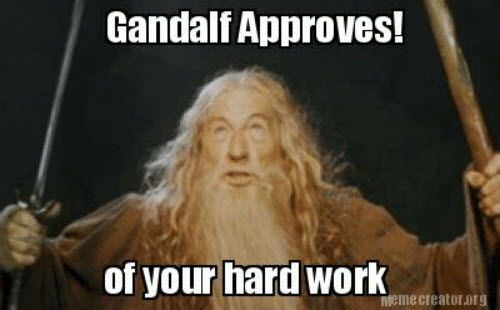
What Do You Need To Know As a Junior Front-end Developer?
Before you start applying for a remote jobs as a junior front-end developer, you need to make sure you have the right skills.
When I was starting out (almost two decades ago 🤯), things were much simpler. All you needed was a basic understanding of HTML, CSS, and JavaScript. jQuery was the hot new thing, responsive design was just starting to take off, barely anyone knew what a CSS preprocessor was, and the term "front-end developer" wasn't even a thing.
But today, the front-end landscape is more complex. You need to know HTML, CSS, and JavaScript like the back of your hand. You also need to be familiar with modern frameworks like React, Angular, or Vue. And you need to understand build tools, package managers, and version control systems.
But the pay-off is worth it. Front-end developers are in high demand. And remote work is more accessible than ever.
Don't worry though my friend. As a junior front-end developer, you need to know the basics and be willing to learn.
Employers are looking for potential, not perfection.
So, what do you need to know as a junior front-end developer?
Learn the Basics
Having never tried coding before, you need to start with the basics. Learn basic HTML and CSS.
HTML (HyperText Markup Language) is the foundation of the web. It gives a structure to the webpage. You can think of it as the skeleton of a webpage.
CSS (Cascading Style Sheet) is the language used to style the webpage. CSS is what gives your website its look and feel.
Find resources to learn HTML and CSS later in this article.
Learn Git and GitHub
Learn Git and GitHub as soon as your first project. You just need to know the basics to share your projects on GitHub.
Git is a version control system. It allows you to track changes in your code. Any job you apply for will require you to know Git. It's a de-facto standard in the industry.
GitHub is a code hosting platform. It allows you to store your code in the cloud and collaborate with other developers. And later you can share your profile with potential employers.
Start Making a Portfolio
You can make your portfolio your first mini project. It's one of the most important things when applying for a job. It's a collection of your projects.
You know the basics of HTML, CSS, and Git. Just the right ingredients to build it.
But don't spend too much time perfecting it. Improve it as you learn new things. Start with something simple. When you learn about responsive design, make your portfolio responsive. Add animations only when you learn about them.
You can host your portfolio on GitHub pages for free. This means you can have your portfolio live on the web without spending a dime. The address will be something like your-username.github.io.
You can also host all your projects on GitHub.
Learn JavaScript
HTML and CSS are great, but JavaScript is what pays the bills.
JavaScript is the programming language of the web. It’s what makes your website interactive. That modal that pops up when you click a button? That’s JavaScript. That slider that changes images every few seconds? That’s JavaScript too.
Later in this article, you'll find resources to learn JavaScript, but there are two I want to mention now:
You Don't Know JS book series by Kyle Simpson
JavaScript30 by Wes Bos
Build Projects Like Crazy
Be careful not to fall into tutorial hell. It's when you keep watching tutorials, probably following along, but never building anything on your own. That's not how you learn.
You learn by struggling, by making mistakes, by breaking things and fixing them. It engages your brain in a way that watching tutorials never will.
If you're not struggling, you're not learning. Embrace the struggle. It's how you grow.
Learn just enough to build something. Then build it. Then learn more. Rinse and repeat. Find something you're passionate about and build a website or web app around it.
When I was starting out, I wanted to learn how to build a blog. So, I built a simple blog using HTML, CSS and PHP (Node.js wasn't a thing back then). It had flaws. When I shared a URL with anyone, they appeared to be logged in as me.
It wasn’t perfect, but it was a start. And I learned a ton building it. I made mistakes and knew how to avoid them next time.
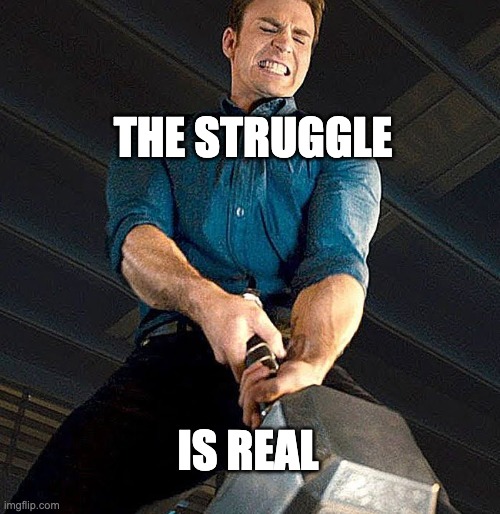
What should you build?
There's only one rule: build something that you're passionate about. If you're not passionate about it, you won't stick with it. And if you don't stick with it, you won't learn.
Are you into movies? Build a movie review website. Love to cook? Build a recipe app. Working out? Build a workout tracker.
The possibilities are endless. Just build something.
Build like your life depends on it. The more projects you build, the better you'll get. And the better you get, the more likely you are to land that remote front-end developer job.
How big should your projects be?
Start Small, Think Big
When you're starting out, it's easy to get overwhelmed. There's so much to learn, and it can feel like you'll never catch up. But don't worry. You don't need to know everything. You just need to know enough to build something.
I don't know everything. No one does. A lot of what I know, I learned on the job. And you will too.
Software development is all about breaking big problems into small, manageable pieces. Start small. Build simple projects.
Once you've built a few small projects, start thinking bigger.
Build something more complex. Push yourself out of your comfort zone. Challenge yourself. The more you challenge yourself, the more you'll grow.
Try to figure out a problem on your own. If you're stuck, Google.
Don't use AI to generate code
There are tools out there that can generate code for you. They promise to make your life easier. But they're not a replacement for learning how to code.
You need to understand how code works. You need to understand how to solve problems. You need to understand how to think like a developer.
If you can't resist, make sure you understand the code it generates, completely.
Pick a Front-end Framework
As you grow as a front-end developer, you will want (and need) to learn a front-end framework.
Web frameworks are collections of libraries and tools that help you build web applications faster and more efficiently. Frameworks vary in complexity and functionality. Some are simple and lightweight, while others are more complex and feature-rich.
Watch this video to understand the difference between a library and a framework: https://www.youtube.com/watch?v=D_MO9vIRBcA.
In the front-end world, there are three main frameworks: React, Angular, and Vue.
There is no "best" framework. Each has its pros and cons.
- React is the most popular.
- Angular is the most comprehensive.
- Vue is the easiest to learn.
To maximize your chances of landing a remote front-end developer job, I recommend learning React. It's the most in-demand framework right now.
Watch this video to understand the differences between the most popular front-end frameworks: https://www.youtube.com/watch?v=cuHDQhDhvPE.
React
React is the most popular front-end framework right now. It's used by companies like Facebook, Instagram, Netflix, and Airbnb.
Actually, React was invented by Facebook. Facebook, Instagram, Netflix and Airbnb are all built with React.
If you run a search for a remote front-end developer job, you'll see that most of them require React.
If you run into any issues, you'll find vast amount of resources online to help you. React is your safest bet.
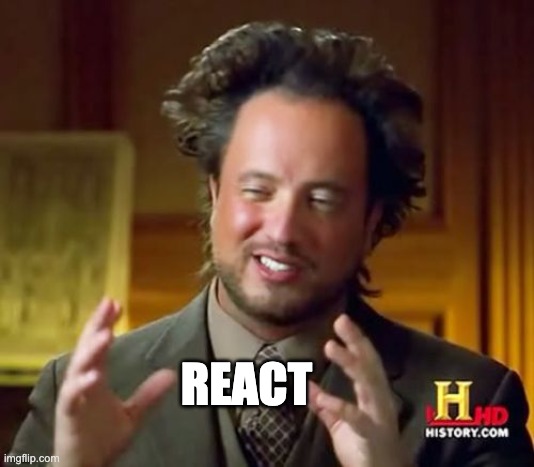
Testing Your Apps
Before delivering your application to users, you need to test them. You need to make sure it meet the requirements it was designer for. You need to make sure it doesn't break when you make changes.
Although testing is not a requirement for a junior front-end developer, if you know how to test your apps, you'll stand out from the crowd.
Testing software is a vast field. Just learn the basics.
You're Job Ready 🤝
At this point, you should have enough knowledge to land a remote junior to mid-level front-end developer job at basically any company.
Deepen your knowledge in the areas you're interested in and keep building projects.
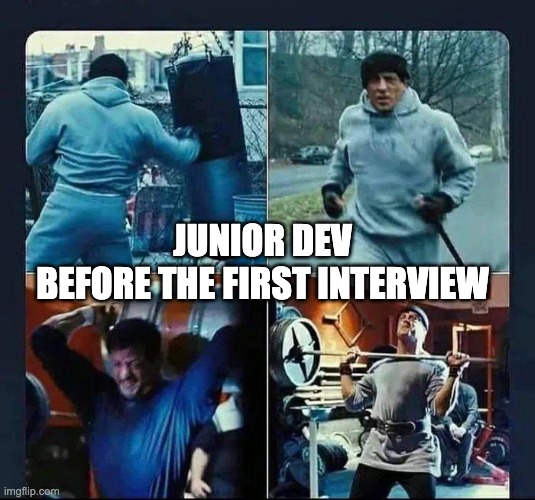
Start Applying Early
The sooner you start applying, the better. You might not get the job at first, but you'll get feedback. You'll know what to improve.
You don't have to wait to learn React first or have a perfect portfolio. You can start applying for front-end developer roles now.
Don't wait until you feel "ready" because you'll never feel ready. I've been in the field for almost two decades and before every interview I feel like an imposter (it's called imposter syndrome).
The worst that can happen is that you don't get the job. But you wouldn't anyway if you didn't apply. So why not use the opportunity to learn?
If you don't get the job, ask for feedback and learn from it. Most interviewers are happy to give you a pointer or two.
Knowing how to crack an interview is a skill in itself. You have to learn it by doing it.
No candidate is perfect. No candidate knows everything. Employers know this. They're not looking for perfection. They're looking for potential. They value attitude over aptitude. They value passion over perfection.
As you're appylying, keep building projects. Keep learning. Keep growing.
And put yourself out there. How?
Put Yourself Out There
Create an online presence to stand out from the crowd.
Don't just sit back and wait for job offers to come to you because they most likely will not. You have to put yourself out there.
Network. Build a personal brand. Learn in public. Start a blog.
Create a portfolio. Create a resume. Create a LinkedIn account. Create a Twitter account.
You're not just a developer. You're building a personal brand. Treat yourself as such.
The more you put yourself out there, the more opportunities will come your way. Don't be afraid to reach out to people. Don't be afraid to ask for help. Don't be afraid to share your work.
We've all been there. We've all started from scratch. We've all struggled.
Until we didn't.
Lessons From Interviewing Other Front-end Developers
We were hiring a junior front-end developer about a year ago. We had a lot of applicants. Some were good. Some were not so good.
One particularly stood out. He had a portfolio full of amazing projects. One of the front runners for the job. That all changed when we asked him to explain some of the code in his projects.
It was more than obvious he didn't understand the code. Some if was generated by AI. Some of if was tutorials he followed (or just copy-pasted) along.
Always make sure you understand the code you write. It's pretty easy to do so in today's world. Just copy and paste the code into ChatGPT (or any other capable AI) and ask it to explain it to you.
Some of the other applicants built simple React or Angular apps. But they didn't understand the basics. React does a lot of the heavy lifting for you. But on your day-to-day job, you'll have to write vanilla JavaScript. You can't write React without understanding JavaScript.
NOTE: Vanilla JavaScript is a term used to describe plain JavaScript without any libraries or frameworks. It's the JavaScript you write before you add React, Angular, or Vue to your project.
Consistency is Key
There is not "the best course" that will teach you everything. You have to be consistent and learn from different sources.
We all learn at different paces. We also learn in different ways. Some of us learn by reading. Some of us learn by watching. Some of us learn by doing. Find what works for you and stick with it.
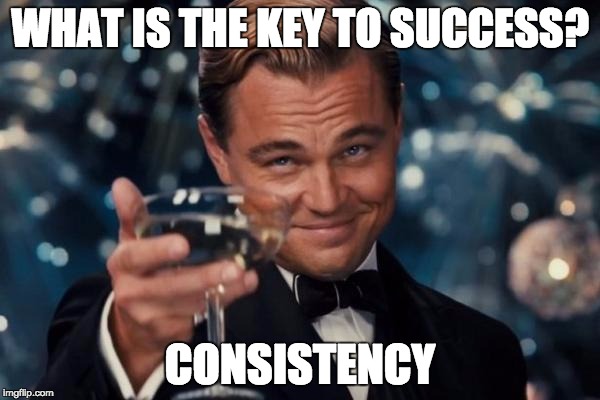
Make learning a habit. 1-2 hours each day. Even when you don't feel like it. You can skip a day, don't skip two.
It's a snowball effect. All of the knowledge you gain will compound over time. The mysteries of the web will no longer be mysteries.
When you get that job, you will be able to learn instead of spending time on the commute. You will learn on the job. As we all did.
You will be amazed at how much you can learn in six months. Six months is what it takes to land a remote junior front-end developer job.
It takes six months to a year to change your life.
TL;DR
To get a junior front-end developer job in six to twelve months:
- Learn the basics (HTML, CSS, JavaScript)
- Learn Git and GitHub
- Make a portfolio
- Learn a front-end framework (React)
- Build projects like crazy
- Don't use AI to generate code
- Start applying early
- Put yourself out there
- Be consistent
That's it for this post. Now it's your turn. Go out there and build something amazing. Make yourself proud.
Resources to Learn HTML, CSS, and JavaScript
HTML
- https://html.com
- https://www.codecademy.com/learn/learn-html
- https://github.com/denysdovhan/learnyouhtml
- https://www.youtube.com/watch?v=mJgBOIoGihA
- https://www.youtube.com/watch?v=pQN-pnXPaVg
- https://www.youtube.com/watch?v=qz0aGYrrlhU
- https://learnhtmlcss.online/
CSS
- https://www.theodinproject.com/
- https://www.codecademy.com/learn/learn-css
- https://www.codecademy.com/learn/learn-intermediate-css
- https://www.youtube.com/watch?v=n4R2E7O-Ngo
- https://www.youtube.com/watch?v=D-h8L5hgW-w
- https://web.dev/learn/css/
- https://www.freecodecamp.org/learn/responsive-web-design/
- https://100dayscss.com/ 🔥
JavaScript
- https://www.javascripttutorial.net/
- https://www.youtube.com/watch?v=hdI2bqOjy3c&t=2s
- https://www.youtube.com/watch?v=P7t13SGytRk&t=22s
- https://javascript30.com/ 🔥
- https://github.com/getify/You-Dont-Know-JS 🔥
- https://learnjavascript.online/
- https://www.scaler.com/topics/course/javascript-beginners/
- https://webdesign.tutsplus.com/build-a-simple-weather-app-with-vanilla-javascript--cms-33893t
Git
- https://www.youtube.com/watch?v=SWYqp7iY_Tc
- https://learngitbranching.js.org/
- https://www.freecodecamp.org/news/learn-the-basics-of-git-in-under-10-minutes-da548267cc91/
React
- https://react.dev/learn/tutorial-tic-tac-toe
- https://egghead.io/courses/the-beginner-s-guide-to-react
- https://www.youtube.com/watch?v=nTeuhbP7wdE
- https://www.youtube.com/watch?v=bMknfKXIFA8